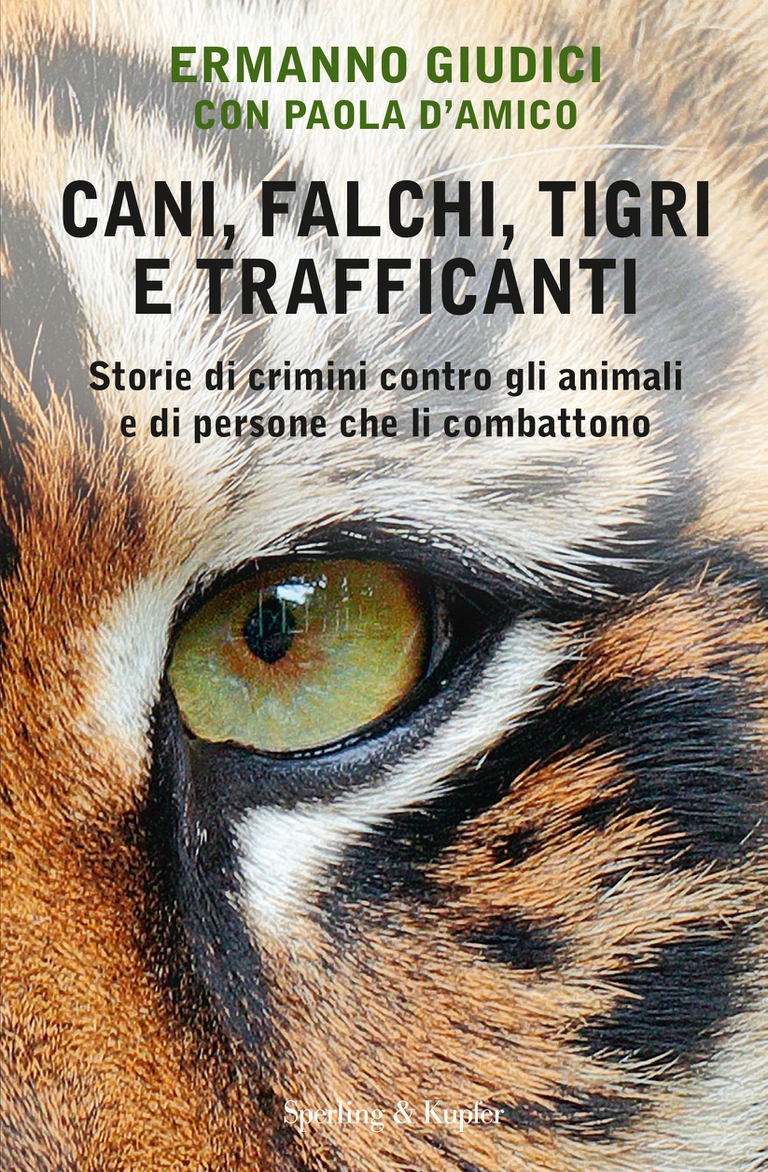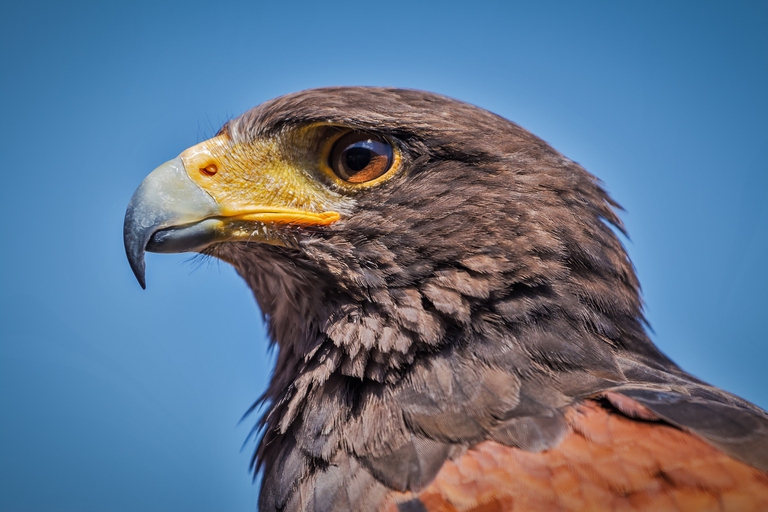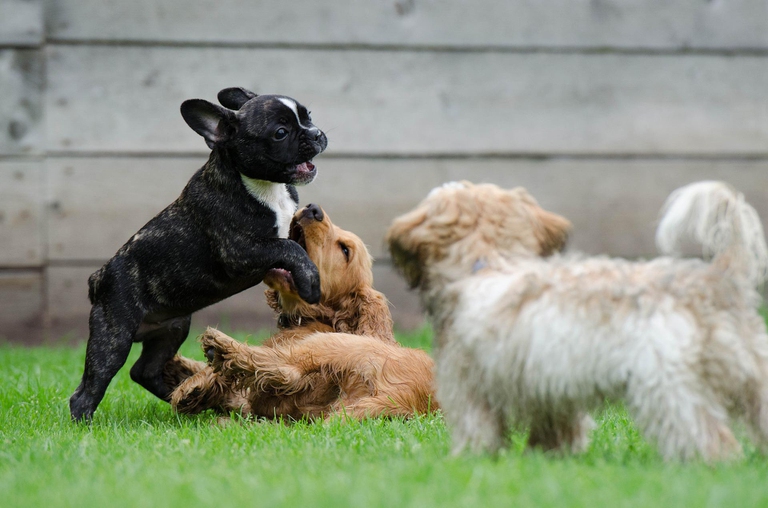https://www.lifegate.it/crimini-contro-gli-animali-orrore-senza-fine
- |
There are crimes and crimes.Those perpetrated against the weakest, be they children or animals, bring with them a horror that truly seems to go beyond reason.And it requires reflection.An example?The writer has lived with dogs for years.Life companions perhaps more attentive and present than a close relative or a close friend.A lot is done for them.Maybe too much.The best doctors, innovative treatments, tailor-made food, entertainment and free time.On the other hand, in the face of lucky and pampered animals, there remains a world full of abuses, of unspeakable violence, of a penetrating and in some ways unknown to most barbarism that affects animals domestic, but also wild and, in this case, the crime becomes more barbaric, more guilty because it also profoundly affects nature and the environment that surrounds us.

Dogs, hawks, tigers and traffickers
Dogs, hawks, tigers and traffickers it's a book by 2020 written by Ermanno Giudici, blogger and writer (The betrayed pact), And Paola D'Amico.I recommend it to all those who want to delve deeper into the topic of crimes perpetrated against animals, whether domestic or wild.Ermanno Giudici has been dealing with animals and their protection for forty years.President and already responsible for many of the zoophilic guards Of Enpa Milan, an organization in which he has played since 1976, is the author of numerous articles on the topic of animal rights and The cry of the innocent And The pact betrayed between man and dog.In addition to his activity as a blogger and author, he also holds training courses for police operators on the same topics.
But let's get back to the book and its themes. The world of animals is a business, the authors explain, or rather... often a bad business. The trafficking of puppy dogs, the breeding of experimental beasts, the trafficking of exotic and dangerous animals, the extermination of wildlife and protected species are real criminal phenomena that involve different types of crimes, from mistreatment to false documents to environmental damage.Not to mention the global health risk, such as that experienced during the avian and flu epidemics COVID-19, most likely triggered in the so-called wet markets, wet markets where infected animals, farmed or wild, are sold after slaughter without any checks.
“There have been no real changes in this sense, beyond some attempts, sometimes a little stretched, such as the generic inclusion of their protection in Constitution”, he adds today Ermanno Giudici precisely on the subject of crimes against animals.“Looking as an attentive spectator, the impression is that there are more announcements than actual changes, because Italian politics often promises and, even in this field, almost never delivers.Not to mention the reform of criminal trial, which will lead to a large portion of the proceedings for mistreatment and trafficking ending up being time-barred and, in any case, will almost never reach a final sentence.It is therefore difficult to say that there have been truly significant improvements in the way of considering and protecting animals."

Crimes against animals do not stop
An open and concrete topic is that of crimes against animals which was the focus of my recent conversation with Giudici on a topic that is often unknown and little disclosed.And, to the initial problem, other pieces are added that contribute to broadening the problem.Recently, for example, right up LifeGate I talked about one law for the "protection" of wild animals.Is it consistent with the path to safeguard the well-being and protection of these species?
“The law in question derives from a European regulation of 2016 born to counteract, prophetically, the pandemics which could be caused by zoonoses transmitted by wild animals;which constitute, especially in the most remote areas of the world, a reservoir of viruses that should be treated with great caution, trying to limit contacts.Despite the rule, finally implemented only in 2021 from our legal system, provided for the obligation to issue implementing decrees by May of this year we are, in reality, still at very high seas.There are too many interests behind the market for animals that live in Italian homes and so compromise solutions are being sought that save everything, except the well-being of unconventional or wild species, which really shouldn't belong in families or cages anymore.For civilization and for health."
An answer that is certainly not encouraging, which leaves the field open to new questions that arise with the war scenarios recently proposed and with the introduction into Europe of refugees and domestic animals often carrying illnesses which seemed to have been eradicated from us.There anger, for example.“The countries ofEastern Europe they have always been a transit route for wild animals trafficked illegally or for what is known as 'puppy trafficking', the phenomenon that takes place on European roads every year eight million of puppies dogs And cats, with unspeakable suffering for various reasons ranging from transportation to breeding conditions.
There war could further exacerbate this phenomenon which, when not subjected to the necessary health checks, can represent a danger to human health and also to that of animals.A risk that should not be underestimated but which, in times of economic crisis, could end up not receiving the right attention.This could mean further trafficking in wild-caught species, worsening the depletion of the planet's natural capital."

Comforting prospects for a more conscious protection of animal rights
The scenario, therefore, is not the best, although sometimes we seem to glimpse a glimmer of hope that can lead to a more coherent vision of the environment and nature that surrounds us.And it is perhaps in the name of a new one ecosystem awareness which Ermanno Giudici adds, to sign off his speech:“The remedy for all the evils that afflict animals passes on the double judicial and cultural track.We need stricter laws, with effective penalties that have a good deterrent effect on criminals, and a cultural change among those who believe they love animals, often being the first to trample on their rights without realizing it.
We know that all markets, even those that involve high rates of suffering for animals, are created by demand and that is where we need to intervene.We need to make it clear how respect, of laws and living beings, is the first founding step of a new culture, where love for animals does not translate into the satisfaction of our needs, but into attention to their suffering.A process that is still very long, on which the associations should also work with greater commitment, without fear of losing consensus."A hope that, perhaps, in the coming years will help us invent a different world.More just and free for those who live there, be they man or animal.
